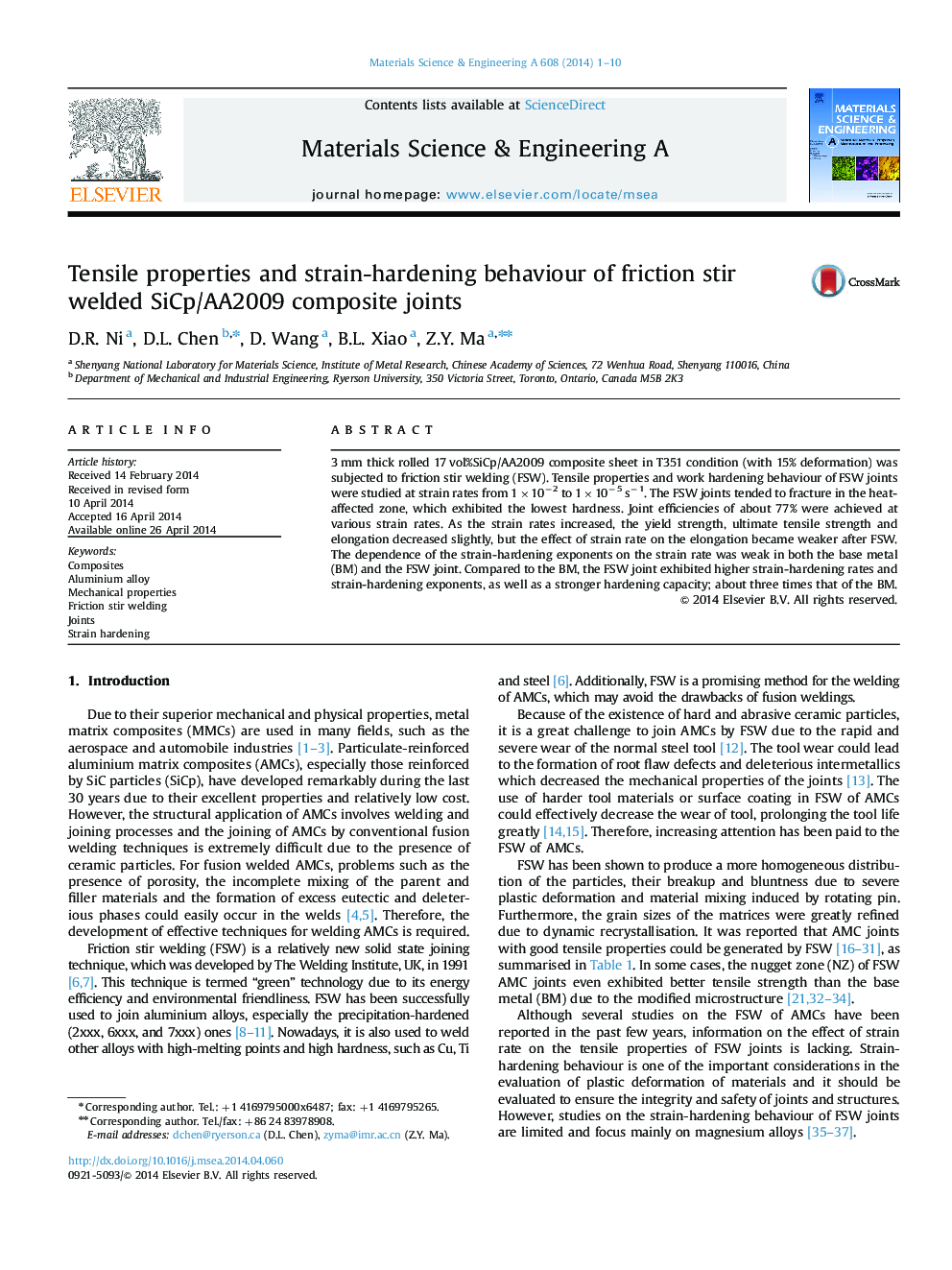| Article ID | Journal | Published Year | Pages | File Type |
|---|---|---|---|---|
| 1575084 | Materials Science and Engineering: A | 2014 | 10 Pages |
3 mm thick rolled 17 vol%SiCp/AA2009 composite sheet in T351 condition (with 15% deformation) was subjected to friction stir welding (FSW). Tensile properties and work hardening behaviour of FSW joints were studied at strain rates from 1×10−2 to 1×10−5 s−1. The FSW joints tended to fracture in the heat-affected zone, which exhibited the lowest hardness. Joint efficiencies of about 77% were achieved at various strain rates. As the strain rates increased, the yield strength, ultimate tensile strength and elongation decreased slightly, but the effect of strain rate on the elongation became weaker after FSW. The dependence of the strain-hardening exponents on the strain rate was weak in both the base metal (BM) and the FSW joint. Compared to the BM, the FSW joint exhibited higher strain-hardening rates and strain-hardening exponents, as well as a stronger hardening capacity; about three times that of the BM.
